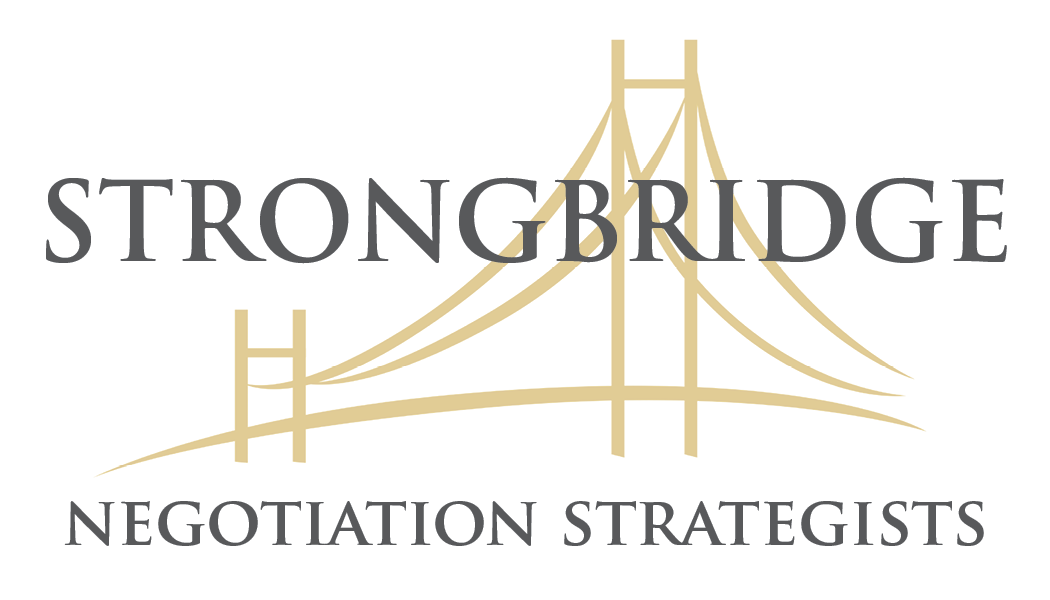Negotiations & Preparation: Fail to Prepare, Prepare to Fail
/Welcome to our first blog post!
We’ve spent a lot of time putting together our website, which was a constant reminder that one of the greatest obstacles to the realization of a successful project is the failure to adequately prepare.
This couldn’t be more true in the case of negotiation.
WATNAs, BATNAs, and LATNAs… Oh, My!
Without adequate preparation, it is virtually impossible to objectively and dispassionately evaluate one’s WATNA (worst alternative to a negotiated agreement), BATNA (best alternative to a negotiated agreement) or LATNA (likely alternative to a negotiated agreement).
For example, when negotiating the resolution of a dispute, countless are the litigants who, regrettably, either paid too much (the defendant) or were paid too little (the plaintiff). Just as problematic are those who failed to resolve the dispute, chose or were forced to go to trial, and were “shocked” by a verdict that was far less favorable than any settlements that were offered and rejected.
Lessons Learned from Litigation
One study underscores the occurrence of the “shock” factor that results from parties’ failure to adequately prepare. Researchers analyzed settlement decisions in more than 2,000 California cases that proceeded to trial after settlement discussions came to an impasse. They compared the verdict results when the plaintiff rejected the defendant’s last best offer to the plaintiff’s last demand that the defendant rejected. What they discovered is illuminating:
- Errors made by plaintiffs in properly valuing their cases occurred more frequently than defendants’ errors (61% of the time) and the average error was approximately $43K (that is, in 61% of the cases the plaintiff recovered on average $43,000 less than the defendant’s last offer)
- Although defendants erred less frequently (21% of the time), the average error was far greater, approximately $1.1 million (that is, in 21% of the cases the plaintiff’s last demand was on average $1,100,000.00 less than the ultimate jury verdict)
In determining the error rate, the study did not even factor in the other costs the parties incurred by opting to proceed to trial (i.e., attorney and expert fees; potential loss of good will with suppliers, customers, and employees; the investment of time and talent of personnel that might have been devoted more profitably to other activities; adverse publicity; etc.). Suffice it to state, had all such factors been quantified in this study, the error rate, as well as the extent of the average error, would have been greater for both plaintiffs and defendants.
From the Courtroom to the Boardroom
Outside of litigation, similar questions arise. How many companies have celebrated euphorically after signing a “historic” acquisition or merger agreement, only to be shocked and dismayed when the deal not only failed to achieve the anticipated benefits but proved economically disastrous?
The key anticipated benefits of a merger or acquisition might include:
- a diversification of product and service offerings
- an increase in plant capacity
- larger market share
- utilization of operational expertise and research and development
- reduction of financial risk
- access to intellectual property rights
If all goes well, the “new” company will enjoy significant benefits such as appreciated value appreciate from cost savings and increased revenue - outweighing the risks implicit in any negotiated deal.
Don’t Be the Runner That Stumbles
Time and again, however, “unanticipated” stumbling blocks and risks after the consummation of the deal often dwarf the desired benefits. Cultural clashes, turf wars, and other under-appreciated threats can prevent post-integration plans from being properly executed. Different systems and processes present integration obstacles. Unrealized synergies result in the dilution of a company's brand. A lack of understanding of the target firm’s business leads to a reduction in market share. etc. All of these dangers destroy value and the desired benefits of the deal.
Even the smartest and most sophisticated enterprises are not immune to the curse of a failure to prepare. Remember New York Central and Pennsylvania Railroad, Quaker Oats Company and Snapple Beverage Company, America Online and Time Warner, Sprint and Nextel Communications?
Colin Powell had it right when he said, “There are no secrets to success. It is the result of preparation, hard work, and learning from failure.” The trick, however, is to learn from the failure of others rather than those that are self-induced.
Our collective experience will assist you and your internal personnel in achieving the appropriate level of preparation to address the potential risks implicit in all negotiations – don’t be eaten by the wolves!


